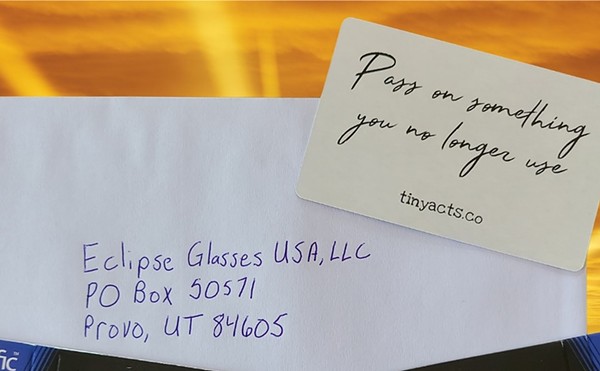It was no surprise, really, that Katharine Fulkerson was last — the final person accepted for a peace mission to Iran sponsored by the Fellowship of Reconciliation. The interfaith organization was concerned about the 80-year-old’s ability to handle the strenuous climate.
“They wondered about the extreme pollution in Tehran, because the last trip they had in December, one of the women had lung trouble there,” Fulkerson said last week in an interview. “They also asked if I could walk on uneven ground.”
Fulkerson is diminutive and slight in person, with a voice that quivers intermittently and a warm, grandmotherly smile. She speaks in cogent, complete sentences about a long life spent as a physicist, wife, mother, cellist and international traveler.
She’s taught music and worked on the lunar module for American Air Filters in Louisville. In 2000, she taught English to Vietnamese teachers, and has spent time in Turkey, Morocco and Egypt, among other jaunts overseas.
Two days after she returns from the Iran mission, which began Sunday, Fulkerson and a friend are packing the car for a southwestern road trip. They’ll be strapped with tents instead of cash for hotels.
To see her statistically, one might fret over Fulkerson’s vitality. Sitting face to face, however, such a question never occurs to me.
It’s lamentably often in today’s world that humanity judges its own members on factors that exist outside their control, things like age and race. In fact, that’s the catalyst for this mission.
Fulkerson and six other Louisvillians — Gray Henry and her husband Neville Blakemore Jr., Emil Roy, David and Ona Owen, and Richard Humke, a retired Episcopalian priest — will join 18 others from across the United States and Great Britain to spend almost two weeks city-jumping in the Islamic country.
Their mission is one of discovery and friendship; all have personal motives for going, as well as the greater good of fostering better understanding between cultures that — it’s probably safe to assume — share a knowledge gap that mainstream media attention has split into a canyon.
“I find every time I go to a country that’s being written about a certain way, it’s not at all what I’ve read in the newspapers or seen on television — not at all,” said Gray Henry, 63, owner and operator of Louisville’s Fons Vitae press, which publishes interfaith books on spirituality, many of which concern Islam.
It’s not that big American media is saying negative things about the Iranian people, but that it reports predominantly on violence breaking out or the rhetorical warfare between President Bush and Iranian President Mahmoud Ahmadinejad.
“I just wanted to use this as an opportunity to do a check on the impression we’re all getting versus the reality there,” Henry said. “And also to embrace my Persian human brothers and sisters as my own friends, as a way to — how do we stop this syndrome of fear between the cultures?”
Each paid about $3,500 for the trip, which will take them to Tehran, Qom, Esfehan and Shiraz. It is the second installment of FOR’s Iran Initiative, which began with a similar trip last December. FOR is the country’s largest and oldest interfaith peace organization, boasting chapters in 40 countries and on every continent.
The day the delegation left for a brief training session in New York was the same day — Sunday — that Iran’s government announced it would reject a potentially forthcoming United Nations resolution demanding it halt its low-level uranium enrichment program.
Meanwhile, the threatening rhetoric between the United States and Iran continues to escalate, eerily reminiscent of the march toward the American invasion of Iraq in early 2003.
There has been a state department travel ban on Iran — a country of 69 million people that’s just larger than Alaska — since November 2004.
Ethan Vesely-Flad, editor of FOR’s Fellowship magazine, was part of a delegation to Israel and Palestine three years ago. He compared the situations in the two countries, as well as how Americans tend to perceive them.
“There’s no concern about being kidnapped by people in Iran,” he said, adding that the December delegation was warmly received.
None of FOR’s delegations have ever been attacked. He said both national governments are aware of the trip.
While none of Louisville’s seven are afraid of an attack, the escalating diplomatic tensions have given a nervous edge to the whole thing.
“It’s gotten more dicey since November ,” Humke said. “I’ve had pause a couple times about it.”
It’s simply a matter of perspective, Henry recalled.
“There’s this little anxiety, because one stupidly associates a whole mass of people with their leader.”
Check next week’s LEO for an update from the FOR Iran delegation.
Contact the writer at
[email protected]





